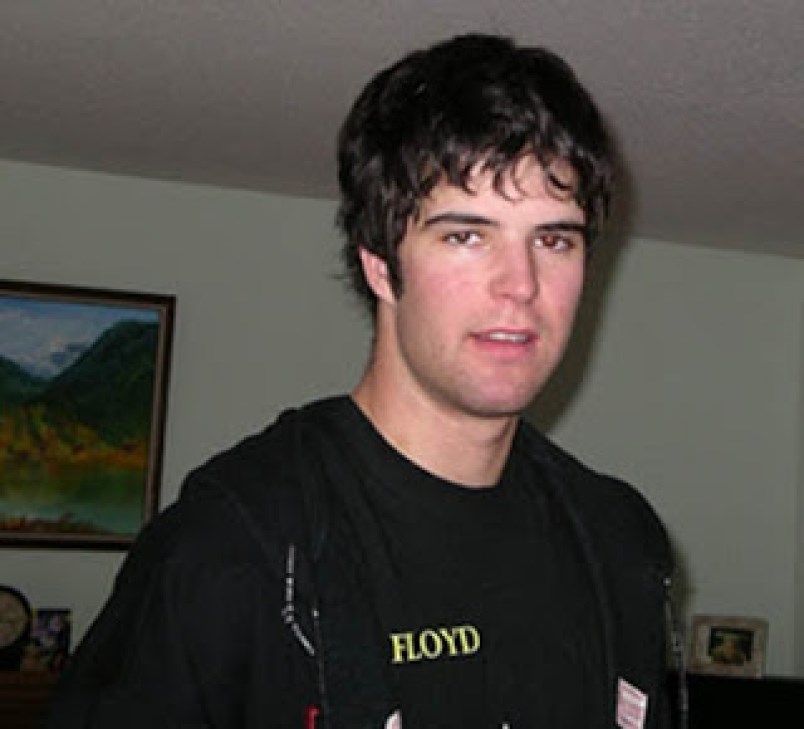"I was totally caught off guard," he told The Chief in an email.
After investigations by WorkSafeBC, the RCMP and the B.C. Coroners Service, the case against Peter Kiewit Sons ULC (Kiewit), Timothy Rule and Gerald Karjala was set to go to trial on Sept. 7, 2021.
Pearson, who has long been a spokesperson for the family, had been waiting for the trial after years of advocating for it.
Fitzpatrick's parents have both died in the years since their son's death.
Instead of the trial, on Aug. 31, the prosecution's office announced that a stay of proceedings was entered.
This means Crown counsel dropped the charges ending the prosecution.
The three accused were charged on May 31, 2019, with criminal negligence, causing death in the workplace death of Fitzpatrick on Feb. 22, 2009.
Fitzpatrick, 24, had been working as a drill and blast crew scaler on a Kiewit hydroelectric project near Toba Inlet.
The prosecution stated it had determined that "the available evidence no longer satisfies the charge assessment standard for the continued prosecution of the charged corporation and individuals for any criminal offence. As a consequence, a stay of proceedings was directed in the case."
Fitzpatrick was working on a Kiewit run-of-the-river hydroelectric project when he was struck and killed by a large boulder that rolled down from the slope above him.
Two excavators were working above Fitzpatrick at the time.
“A large quantity of loose material from blasting and clearing operations had accumulated on the slope,” reads the prosecution’s statement.
One of the excavator operators had spotted the rolling rock and radioed a warning, but Fitzpatrick could not hear the alert.
The day before his death, another rock had rolled down the same slope. With a radio warning, all workers in the area were able to get out of the way, and no one was hurt, though a large piece of equipment was damaged by the boulder.
“After the near-miss, work was halted and Timothy Rule, the construction manager, chaired a safety shut-down meeting. A consensus was reached that the work could not continue in the same way, with excavators casting material down the slope above crews or equipment working on another heading,” reads the prosecution’s statement.
The next day, Fitzpatrick was killed.
In March 2011, WorkSafeBC imposed a $250,000 penalty against Kiewit for reckless violations of Occupational Health and Safety regulations that resulted in a death. That penalty was later reduced by the Workers Compensation Appeal Tribunal to $100,000.00 in March of 2013 because the tribunal said it was not convinced the company’s actions caused Fitzpatrick’s death, the prosecution's statement notes.
Kiewit and his superiors — Rule and Karjala — were each eventually charged with one count of criminal negligence after the original investigations allegedly found the work area above Fitzpatrick was not sufficiently cleared of loose material.
The prosecution's media release states that due to the amount of time that had passed since the incident that led to Fitzpatrick’s death, the Crown could not "definitively exclude the possibility that the rockfall was a random event originating outside of the work zone."
Pearson said that RCMP investigators and the prosecutor's office had warned him long ago about the risk that the passage of time could impact the trial.
"Even at that, they believed that the case was strong. So did I," Pearson said.
Pearson says that he and Sam's dad, the late Brian Fitzpatrick, had gathered a lot of the evidence themselves or provided a pathway for others to get the necessary information.
"I thought that the problems of how much time went by would be tested in the courtroom and survive nicely," Pearson said.
"But no. The evidence started to collapse as it aged."
"At the start of all this Brian Fitzpatrick and I said that if we can't get justice with Sam's death, as egregious and seemingly simple, then no worker will ever be able to expect the legal system to stand up to a motivated and powerful corporation," he said.
Kiewit told The Chief that the prosecution’s decision “marks the conclusion of a long, difficult chapter for many, starting with the family and friends of Sam Fitzpatrick who lost his life in a tragic accident on the Plutonic Power Hydroelectric Project nearly 13 years ago.
“For Kiewit, Sam has always been at the heart of this matter, and we continue to offer our sincerest condolences to his family, friends, and those who worked with him for their loss,” reads a statement from Kiewit Corporation’s spokesperson Bob Kula.
“Although none of this takes away from the tragedy of what happened, we are gratified that the British Columbia Prosecution Service has come to the conclusion that the evidence does not support continuing with criminal charges in this matter. It has always been our company’s belief and that of our experts that the rockfall that took Sam’s life was a tragic accident and was not caused by the actions of any personnel working on the site. We appreciate the professionalism BCPS showed throughout this challenging process,” Kula added.
~With files from The Canadian Press



